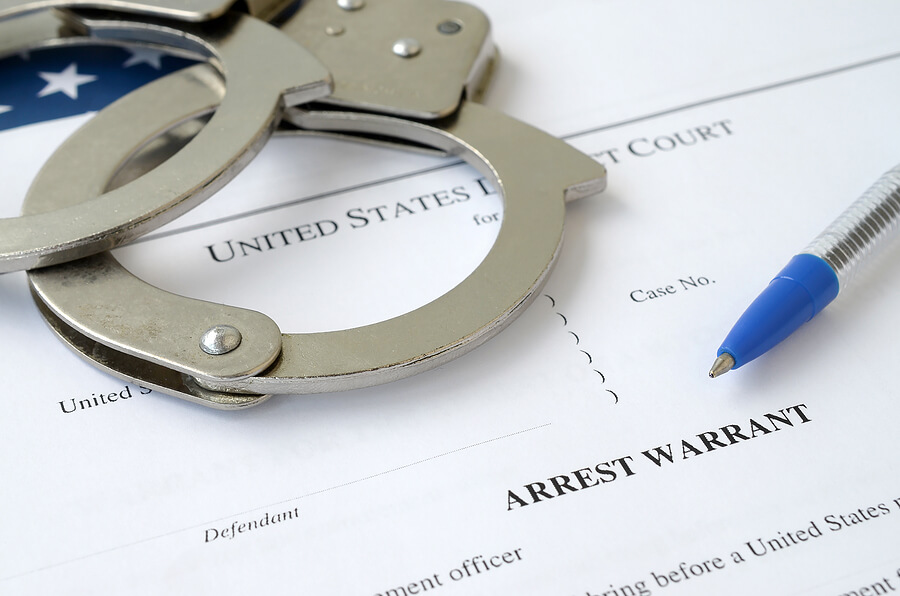Most assault cases are misdemeanors in North Carolina. Assault can be a serious charge by itself. Add in anything that can be considered a deadly weapon, and a misdemeanor charge escalates into a felony charge immediately, even if no one was hurt. The reasoning is that the involvement of a weapon greatly increases the chances that a victim will be seriously hurt or even killed.
There are multiple levels of “assault” in North Carolina, both misdemeanor and felony. If you’ve been arrested and charged with assault with a deadly weapon, these are felony charges with serious consequences.
The Charge
There are three ways that someone can be charged with Assault With A Deadly Weapon in North Carolina:
 With the intent to kill, in which serious injury is inflicted, a Class C felony
With the intent to kill, in which serious injury is inflicted, a Class C felony- With intent to kill but no serious injury is inflicted, Class E felony
- Inflicting serious injury, a Class E felony
Intent to kill is established by the actions and words of the assailant that he or she clearly meant to kill the victim, even if they did not.
A “serious injury” is one that:
- Permanent and serious disfigurement
- Long-term/permanent pain
- Long-term/permanent impairment
- Loss of function of a body part or organ
- Long-term hospitalization
- Comatose condition or significant risk of death
One particularly important point is whether the alleged victim actually suffered injuries that could be considered serious. A defense attorney will seek to prove that the other party did not suffer major injuries or any injuries at all.
What Is A “Deadly Weapon?”
As you might imagine, guns, knives, blunt objects, and other items are considered deadly weapons, but the statute doesn’t have a strict definition. So everyday objects used in a deadly weapon case that results in someone’s death will fit that definition.
This means that picking up anything that’s handy and using it as a weapon will still be considered as a “deadly weapon,” even if it isn’t a firearm. If during an assault, for instance, a person picks up a cast-iron pan, a baseball bat, a fireplace poker, or a hand-sized object made of glass or marble to strike someone, the object becomes a deadly weapon. No matter what the object, its weight, size, and/or shape can cause serious injury or even death if used against someone the right way.
Sentencing And Penalties
A sentence will depend on the class with which the person was charged.
- Class C felony for Intent To Kill with serious injury: between 44 and 231 months, or 3.6 years to 19.25 years.
- Class E felony for inflicting serious injury or intent to kill without injury: between 15 and 88 months, or 1.25 years to 7.3 years. However, prior convictions can increase the sentence as high as 182 months or 15.2 years.
Additionally, there are fines, court costs, restitution to the victim, probation, and other miscellaneous penalties. You may also be sued in civil court for financial damages as a personal injury or other types of case.
Criminal Defense Attorney Dewey P. Brinkley In Raleigh
Assault with a deadly weapon is a serious crime that can include a long-term jail sentence. If you’ve been accused of this crime, it’s important to find someone to defend you in court who has your best interests in mind. Your future, your life, and your rights are on the line, so it’s important to begin working with a criminal defense attorney who will work for you.
Dewey P. Brinkley is an experienced criminal defense attorney in Raleigh, NC with a proven track record of defending clients against criminal charges. If you’ve been charged with assault with a deadly weapon, contact him immediately to begin building your defense.
Call Dewey P. Brinkley today for a free initial consultation to discuss your case at (919) 832-0307. You can also email us by using our online contact form.

 Anyone wishing to request an expungement must do so by filing a petition since it is not automatic. The new law allows for the expunction (also called “expungement”) for:
Anyone wishing to request an expungement must do so by filing a petition since it is not automatic. The new law allows for the expunction (also called “expungement”) for:
 These misdemeanor categories are:
These misdemeanor categories are: Most protestors are arrested for minor infractions such as failure to disperse or resisting a public officer. That was the case in Charlotte when over 100 people were arrested after protests.
Most protestors are arrested for minor infractions such as failure to disperse or resisting a public officer. That was the case in Charlotte when over 100 people were arrested after protests.  Criminal charges are either a misdemeanor or a felony, depending on the intent. If someone just breaks into a home, it’s usually a misdemeanor.
Criminal charges are either a misdemeanor or a felony, depending on the intent. If someone just breaks into a home, it’s usually a misdemeanor. Protesting comes under the First Amendment and “free speech.” This means that you have the right to express an opinion in public, anytime, anywhere, with some limitations. (Not all speech is “protected” by the First Amendment, such as inciting riots or “fighting words.”) Protests and demonstrations on private property, such as a place of business or employment, are not as protected.
Protesting comes under the First Amendment and “free speech.” This means that you have the right to express an opinion in public, anytime, anywhere, with some limitations. (Not all speech is “protected” by the First Amendment, such as inciting riots or “fighting words.”) Protests and demonstrations on private property, such as a place of business or employment, are not as protected. It’s the process by which you request that the court eradicate a past charge, arrest, and in some cases, convictions. The request is made to a judge in the court where the arrest occurred, who reviews your records and makes the determination. If approved, the criminal record is destroyed by court order.
It’s the process by which you request that the court eradicate a past charge, arrest, and in some cases, convictions. The request is made to a judge in the court where the arrest occurred, who reviews your records and makes the determination. If approved, the criminal record is destroyed by court order. Cyberstalking can also be from different individuals known to the victim, such as neighbors, friends of friends, relatives, or coworkers, or may even be strangers. Whatever the case, an individual who is a target of cyberstalking finds themselves experiencing a persisting and strategic campaign of different types of online abuse intended to harass, threaten, and humiliate an individual to control and intimidate a victim. Other forms of abuse include financial abuse and an attempt to isolate the victim from supportive family and friends.
Cyberstalking can also be from different individuals known to the victim, such as neighbors, friends of friends, relatives, or coworkers, or may even be strangers. Whatever the case, an individual who is a target of cyberstalking finds themselves experiencing a persisting and strategic campaign of different types of online abuse intended to harass, threaten, and humiliate an individual to control and intimidate a victim. Other forms of abuse include financial abuse and an attempt to isolate the victim from supportive family and friends. North Carolina divides misdemeanors into four categories: A1, 1, 2, and 3. These will depend on the seriousness of the offense you’re charged with, and can rage from simple marijuana possession to things like larceny (theft) and property damage.
North Carolina divides misdemeanors into four categories: A1, 1, 2, and 3. These will depend on the seriousness of the offense you’re charged with, and can rage from simple marijuana possession to things like larceny (theft) and property damage.